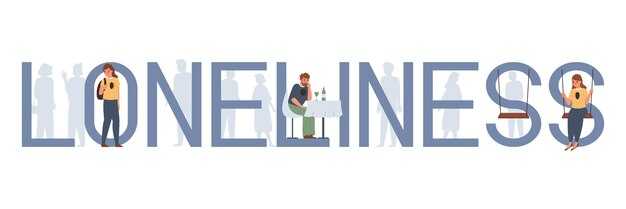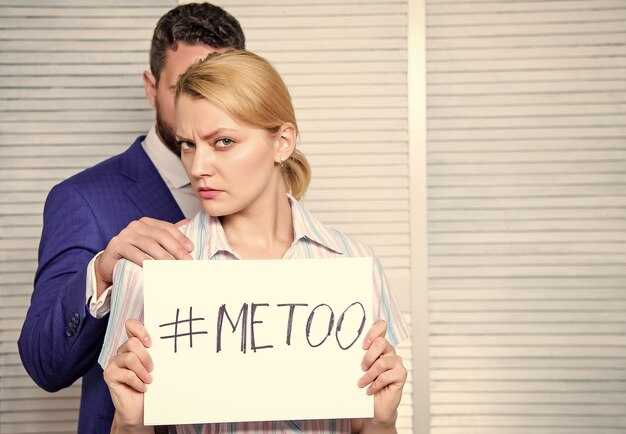Your sense of who you are — and therefore what you can imagine for your future — is woven from the narratives you repeat to yourself and to others. If your running story is that life is cruel, that nothing is fair, that people are out to use you and you never catch a break, that pattern is a clue you may be remaining small. Those of us who endured a difficult childhood can easily get stuck in that loop. Yes, trauma really happened, but it doesn’t have to be the label that defines you forever. It can remain a memory without becoming your identity. While it’s important to tell your story at times, if sorrowful retellings are the defining theme of your life, you risk remaining trapped in a diminished version of yourself. This is another instalment in my series on how to stop playing small. If you want to watch the entire series, subscribe to the channel and tap the bell so you’ll know when new videos drop. I’m deeply invested in this topic and weaving it through many of my videos — check them out; a lot of people tell me they relate.
It’s completely understandable to be affected by painful events you’ve endured. Sometimes you need to talk about them — a certain amount of processing is necessary. True recovery, however, requires developing the ability to come back from those memories and inhabit the present. That’s what re-regulation and processing feel like: the memory stops sweeping you away and you return to the here and now. Healing takes place exclusively in the present moment, where authentic connections with others and acts of self-care can occur. To heal, you must treat yourself well across the board: attend to your physical health, your money, your relationships — even your dental care — and maintain the place where you live. For people with trauma, this is often hard because when dysregulated all our energy is spent just keeping afloat, getting through the next day while the mind buzzes with worry and sadness. It may not seem important when you’re struggling whether your clothes are clean or whether you eat well, but over time those things matter. As you stop identifying with trauma, it ceases to dominate your thoughts and feelings, and you become alert to what matters right now.
I’m not saying you shouldn’t look back or process the past — you should — but if your past is all you think about, you leave very little room for today’s problems and opportunities for growth. Today is where you have the capacity to do powerful healing. That is the exact opposite of playing small: it’s becoming the kind of person who cares for their life through reasonable, steady actions. By reasonable I mean practical, sane acts — standing up for yourself, not only against bullies or ostracizers, but being the person who watches the calendar and clocks, feeds your body, pays the bills, keeps your home in order, and cultivates relationships with people who add good things to your life.
Every morning I read comments on my YouTube channel, and while the feedback is often wonderful, a downside is encountering people who respond by insisting healing is impossible. They declare, “It’ll never happen; everyone’s kidding themselves.” I don’t accept that. Those commenters usually present themselves as the only clear-eyed ones, casting contempt and pessimism for everyone to see — perhaps hoping to recruit others to their hopeless view. Misery often seeks company; maybe it’s a cry for help, but YouTube is a poor place to get real support because no one knows your actual circumstances. I don’t know what they want — attention, converts, to dare me to “fix” them? Meanwhile, thousands of people here genuinely want to heal and are open to doing the work, and I focus my energy on supporting them rather than engaging with people who only aim to tear others down. If cynical commenters ever want to learn how I recovered, they can find the free course I offer here; there are paid options for more advanced work and a membership if you want community and more time with me. There’s plenty available, but participation is voluntary.
I teach because healing is central to my identity: I found a way to recover and I provide practical tools and principles anyone can use. Notice that the pessimists still often watch videos titled things like “how to have better friendships” or “how to heal trauma symptoms” — that tells you something: they have a sliver of hope otherwise they wouldn’t be watching. If you recognize yourself in that pessimism, try to open up a little and give the material a chance. You’re in the company of many people here who are living through the healing and seeing results. Comparing traumas is pointless; what matters less is the objective severity of an event and more how it was processed and who we were at the time. Some people are devastated by what seems like a large event, while others adopt a “cowboy” mentality and move on. When you suggest healing is possible, it can feel like a threat to those who have made hopelessness their worldview — which may explain the anger directed at people who are trying to get better. Putting down others who are working on themselves is cruel and unnecessary; sometimes the contempt feels inhuman. Whatever the source, we don’t want that kind of energy on this channel; we aim for encouragement because encouragement heals and discouragement harms. Don’t poison people here — offer them medicine in the form of support.
Don’t wait for the people who hurt you to fix things for you — that almost never happens. Expecting them to do so is impractical and, even if they wanted to, may not be possible. If you find yourself ruminating on how others have held you back, examine that belief: is there anything true in it, and is there anything you can actually change? Zero in on what’s within your power. Often the levers you can pull are surprisingly ordinary: setting a boundary you didn’t have before, apologizing for a misstep, or correcting a self-defeating behavior. If you were a child, you didn’t do anything wrong, but sometimes lacking boundaries or being emotionally unregulated led us into complications. Discovering one small thing you can change acts like a key — it can unlock the stuck, awful feeling and open up new possibilities. Make that one change, and suddenly other options become visible. It’s like driving at night: you can’t see the whole road, so you make one adjustment and then the next stretch of road lights up. Be brave enough to look for any problem in your life where you can exercise leverage, and then act on it. That’s where your power lives: distinguishing between their power and your power.
We didn’t always have agency, but now we have some degree of it. When people mistreat you, how do you respond with the adult power you possess today? Are you repeating old trauma patterns by sabotaging yourself? I’ll speak honestly: I still self-sabotage at times, especially when I’m depleted, threatened, excluded, judged, or emotionally triggered — those old wounds flare up. Everything hinges on what you do next. If you’re in a stable state, you can interrupt the pattern. A common mistake for those traumatized as children is remaining in destructive situations that bring out the worst in them. Have you lashed out instead of asserting yourself? Fallen into impulsive relationships that proved harmful? Finding something you can change is liberating: you get to stand up for yourself and make a different choice. Standing up means opposing put-downs and exclusion, yes, but it also means resisting the urge to belittle yourself or to withdraw from opportunities that could expand your life. Don’t let the belief “I can’t pursue what I want” stop you from trying — don’t invent a permanent impossibility out of a fear of risking failure, whether that’s applying for a job, asking someone out, or moving out of a bad living situation. Too often we translate a needed action that only we can take into a fixed belief that it’s impossible. That’s another symptom of identifying with the trauma rather than seeing it as a wound you have and can work with.
You may imagine that all the power to get what you want rests with others — because they’re privileged, attractive, lucky, or didn’t grow up in a dysfunctional household that turned away from you. Those are real disadvantages, and lacking family support is a kind of deficit, but it doesn’t control you indefinitely. You have current power to find workarounds and begin changing things. When we fixate on the idea that if other people would just change everything would be fine, we freeze and miss the parts of the situation we could alter ourselves. Many of us feel immobilized, depleted of the energy and focus needed to take initiative; when you insist other people must shift, you lock yourself into passivity. Don’t get stuck. Remember what agency means: identify what you do have power over and act on it.
There’s a mental trick where, in your imagination, you sit on a throne and let others approach that throne; you’re exercising personal sovereignty and deciding who to let in or reject. But when you conclude that everyone else is terrible and all is hopeless, you figuratively get off the throne and abandon it. By leaving it vacant you effectively abdicate your own authority — often unintentionally — and make a choice to stay stuck. The better stance is to remain seated on your throne: you are the captain of your life, the one who steers it. No one else can navigate your path for you. If you’re incarcerated or living with a disability or in care, I recognize that external limits may exist; still, use your agency to be as strong, visionary, and willing as you can to lead your life toward meaningful contribution. Stop defining yourself by the trauma and instead regard it as something that happened to you so you can rise up and claim your place.
It’s not always clear what the next step is. People get anxious and stuck — that happens all the time. I do my own daily practices to manage anxiety; I get it, too. Each morning I practice those techniques and then read overnight comments on my channel. The tone at night tends to differ from daytime responses — often the nighttime commenters are in more pain, while daytime feedback can be more upbeat and positive. Most comments are lovely, but about ten percent are deeply negative and pessimistic. There’s a faction who watch videos on making friends, setting boundaries, or escaping isolation and then insist that nobody could ever improve those aspects of life, that only lucky people can. That kind of thinking is the ultimate form of playing small: it shields people from the hard work of change by allowing them to blame others. Don’t let yourself be trapped by the idea that others want you to be small and invisible; in reality, changing these patterns takes persistent daily practice.
In the Crappy Childhood Fairy membership, we support people in doing those hard, daily practices — catching themselves when they slip into negative thinking, when they identify with the trauma, when they feel defeated and hopeless and start generalizing (“this is who I am,” “this is how people are,” “this is how men are,” etc.). That’s why one of our guidelines is to avoid excessive venting and dwelling on the past: the healing work we do here is rooted in the present. This isn’t the same as traditional therapy; we focus on the present symptoms we can work on and the problems we can change now. If a persistent problem is that people treat you poorly, part of healing is refusing to take that behavior passively. Standing up for yourself alters your narrative: instead of telling the story “look what they did to me,” you begin to say “look at who I’ve become despite what was done.” Reorienting your next chapter around standing up for yourself can become the defining fact about you and reshape everything that follows. What comes next becomes your legend — the unfolding story of you. The painful experiences are threads in that story, but they do not determine the ending.
When you do healing work, resistance will arise — the same kind of resistance you see in negative commenters who mock others for trying. As Mel Robbins would advise: let them be. Keep working on yourself. After you’ve expressed your pain, let the sad story become lighter, move it further into the past, and allow it to be a memory rather than a force that drives you. No matter what has happened, it doesn’t define or limit your capacity for greatness. If you’d like a practical way to imagine changing your life, try a thought experiment: picture that you could make any change you wanted and have it accomplished within a year. I call this exercise “one year to heal.” You can download a free copy of it right here. I’ll see you soon. [Music]


 Para a Cura, a Ação Sã é Mais Poderosa do que Histórias Tristes">
Para a Cura, a Ação Sã é Mais Poderosa do que Histórias Tristes">

 ISSO Faz Com Que Eles Entrem em Contato! (O Momento em que Eles Finalmente Mandam Mensagem) | Discurso Motivacional de Jordan Peterson">
ISSO Faz Com Que Eles Entrem em Contato! (O Momento em que Eles Finalmente Mandam Mensagem) | Discurso Motivacional de Jordan Peterson">
 Quando NINGUÉM Te Ouvia Quando Você Era Criança… AQUI Está o Que Isso Faz Com Você Agora">
Quando NINGUÉM Te Ouvia Quando Você Era Criança… AQUI Está o Que Isso Faz Com Você Agora">
 Você não está louco(a) — isso é o que o trauma feminino parece">
Você não está louco(a) — isso é o que o trauma feminino parece">
 Why they say "Nothing I DO is Good Enough!!"">
Why they say "Nothing I DO is Good Enough!!"">
 ">
">
 Por que seu parceiro evitativo está se fazendo de pedra e como eu parei de fazer isso.">
Por que seu parceiro evitativo está se fazendo de pedra e como eu parei de fazer isso.">
 Você é CULPADO disso? Padrão duplo de relacionamento">
Você é CULPADO disso? Padrão duplo de relacionamento">
 Como Curar a Hipervigilância Causada por Comportamentos Sexuais Perturbadores dos Pais">
Como Curar a Hipervigilância Causada por Comportamentos Sexuais Perturbadores dos Pais">
 Eles ficaram parados enquanto você era abusado. Agora eles querem um relacionamento.">
Eles ficaram parados enquanto você era abusado. Agora eles querem um relacionamento.">
 Avoidants Only Bond for Life With ONE Rare Person…!">
Avoidants Only Bond for Life With ONE Rare Person…!">